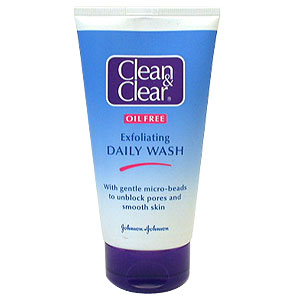Here are some simple tips to follow to get the most out of grocery shopping. It's not always easy to buy on a budget or cut back on your food bill, but following a few simple guidelines and working out a better routine can save you a lot of money in the long run:
1) NEVER shop when hungry. The odds are that if you're hungry, you're much more likely to buy food that appeals to your sense of hunger. Snacks are the main offender, things like crisps (or chips, in America), doughnuts, chocolate etc. are easy to throw into the basket when you think you need them. Usually, this is just your stomach looking for a quick fix.
2) Shop as frequently as possible. Going shopping frequently means that you can pick up the freshest food and restock your cupboards on a regular basis. When shopping frequently, you can usually remember what foods you're missing and what needs to be re-stocked. Furthermore, you can usually remember that one item which is going out of date in a few days and can plan around using it before it expires. If you limit yourself to weekly shops, not only does shopping become a major chore, but a lot of the food you have will expire and the last day or so before a shop will be full of the least wanted foods that you just have to use up.
3) Make a shopping list. In the age of iPhones, Android phones and various other pieces of technology, there's really no excuse to not having a list prepared when you go shopping. The aforementioned phones should both come with a notepad programme. Even if you don't have something that you can make a note on, there's nothing wrong with pen and paper. Making lists prevents you from impulse buying (thinking things like "ooooh, I'll make that with those!" or "I could really go for some chips/crisps right now") and streamlines your shopping, time is money as they say. If you can plan your meals out for the next few days, even better. This stops anything going to waste or you wasting any money on things you don't really need.
4) Check the sell by dates/use by dates. A lot of foods might expire before you intend to use them and knowing that your milk will last long enough for you to use it all is a great example of how to use sell by dates to your advantage. It seems a very simple tip, but you'd be surprised how often people buy something only to have it expire before they even get chance to use it. A general tip is to always check the product at the back of a stack. Usually, especially with bread, this is where the freshest is kept. The older food is put to the front of the shelves so that it is quickly shifted. Be one step ahead of them and go for the freshest.
5) Plan your meals well. If you can get away with it, use the same base for a few meals. This was demonstrated in an early episode of gastronomy economy, a TV show aired on BBC Two a year ago or so. Meals such as spaghetti bolognese and chilli con carne share a lot of common ingredients. Buying in bulk is always cheaper and this makes such options valid and varied. The idea is to cook the base for the dish and use it on 2+ nights, making it into a spaghetti bolognese or chilli con carne (for example) by adding the required ingredients to the base dish. It's something difficult to adapt to, but it can save plenty of money without forcing you to eat the same thing day in day out.
6) Bargain hunt! Supermarkets will often have certain items reduced in price on sale. Make the most of this. Usually, there are two reasons behind such a sale; either they're overstocked or they're close to their sell-by-date. If it's the former, you can look forward to the item being on sale for some time and it'd be wise to try to incorporate it into your shopping cycle and make some money on it. If it's the latter, be prepared to throw tonight's plans out of the window for dinner. Food close to its sell by date is still quite fresh and edible and if you really look out for it, you can get your cuts of meat at a very affordable price, which will be a good portion of your supermarket bill. This is where shopping regularly comes in, such you can capitalise on such bargains.
7) Don't order online unless you must. From experience, most shopping deliveries have a tendency to charge for delivery (£5 on an otherwise £25 bill) and their food is poorly handled and nowhere near fresh. It's not unusual to have something expire only a day after your delivery with no way to tell in advance.
8) Cook from scratch. Pre-made meals are easy, but a convenience. Cooking meals from scratch can usually save a lot of money and once you've got it nailed down, can taste a lot better than the pre-manufactured stuff. Whipping up a big pan of soup/broth for the winter months is much more affordable than buying several tins of the stuff. Potato wedges can be made and seasoned for a fraction of the price and can pack much more of a flavour. Not only is it better on your wallet, but you're learning a valuable life skill that's a step in the door when it comes to relationships.

